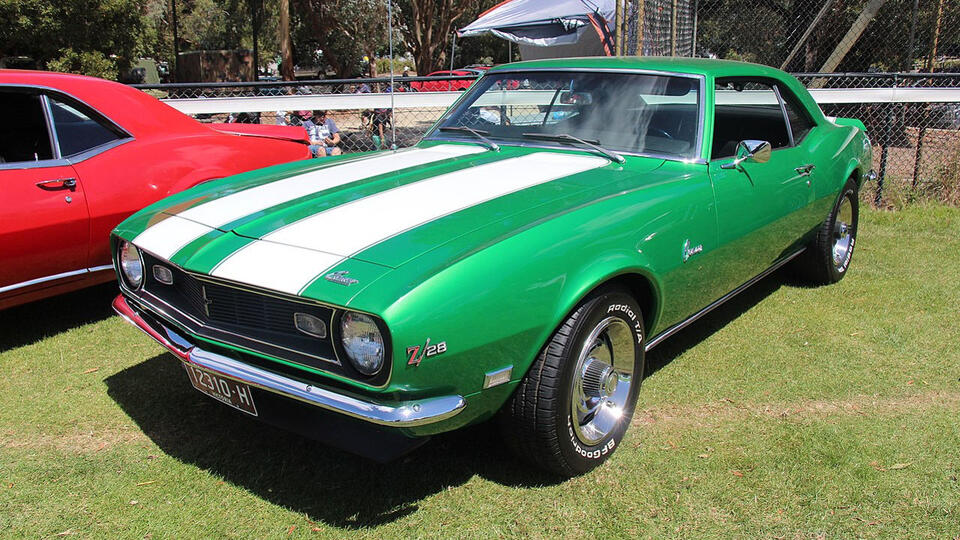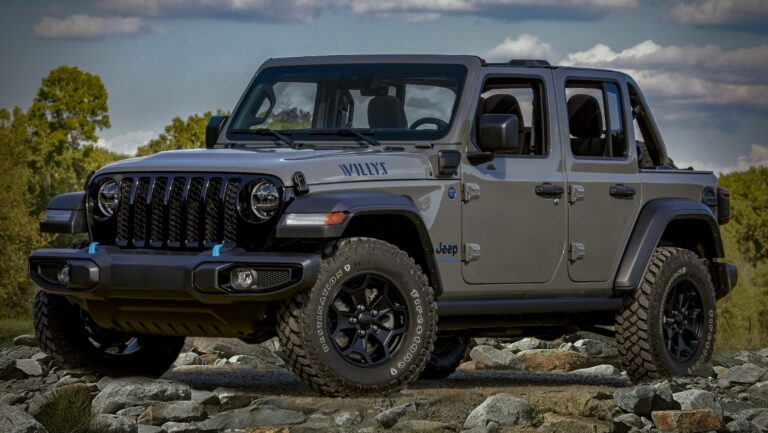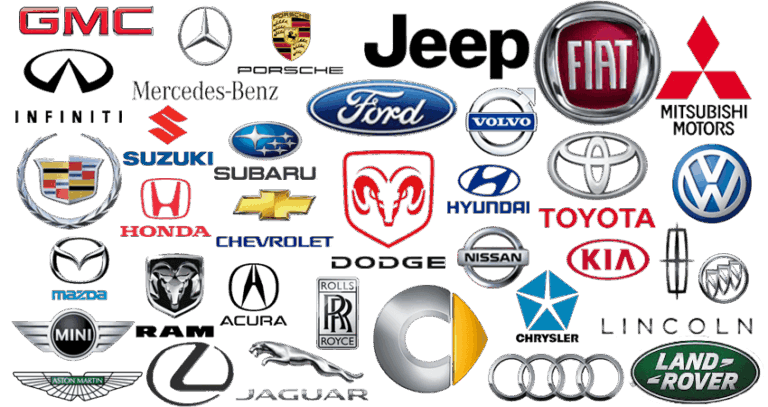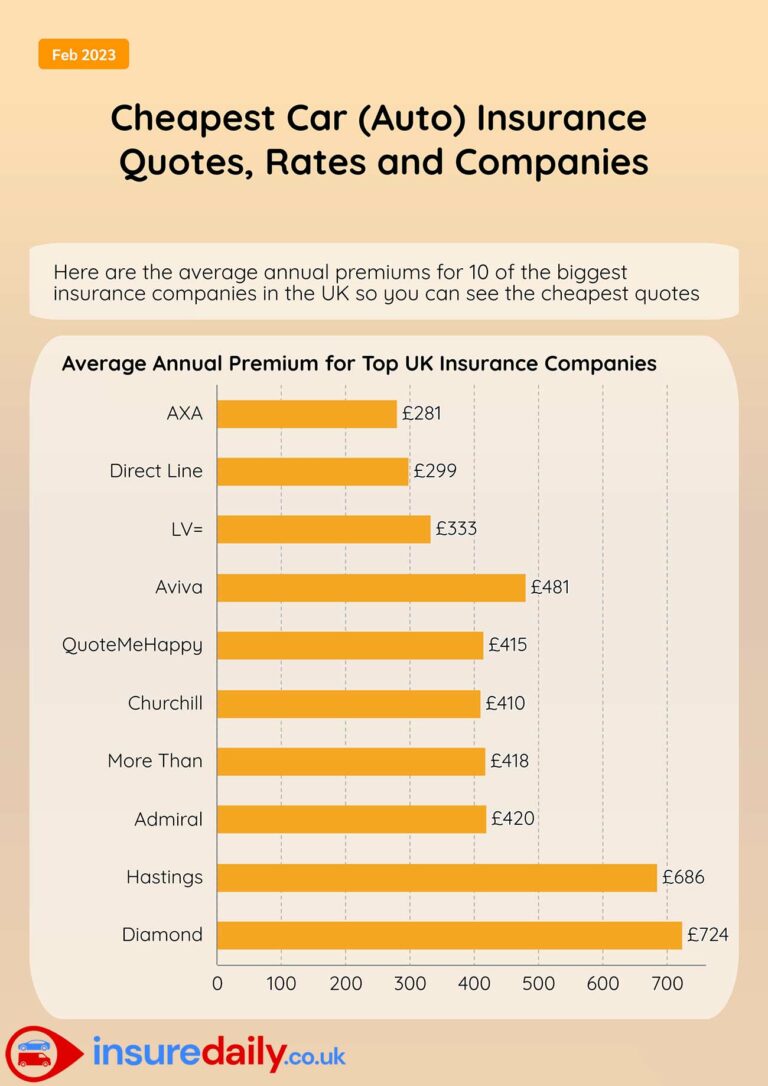American Made Car Brands: A Comprehensive Guide to Buying Domestic
American Made Car Brands: A Comprehensive Guide to Buying Domestic cars.truckstrend.com
In a globalized world, the concept of "American Made" can seem complex, particularly when it comes to the automotive industry. What truly defines an American-made car? Is it simply the brand’s headquarters, or does it delve deeper into where the vehicle is designed, assembled, and where its myriad components originate? This comprehensive guide aims to demystify American-made car brands, exploring their significance, identifying key players, outlining the benefits of choosing domestic, and providing practical advice for consumers.
What Defines "American Made"? A Deeper Look
American Made Car Brands: A Comprehensive Guide to Buying Domestic
The notion of an "American Made" car extends far beyond the badge on the hood. While a company’s historical roots and corporate headquarters play a role, the truer measure lies in its manufacturing footprint and the origin of its parts.
Headquarters vs. Manufacturing Footprint: It’s a common misconception that if a car brand is historically American (like Ford or Chevrolet), all its vehicles are exclusively made in the USA. Conversely, many foreign-owned brands like Toyota, Honda, and Mercedes-Benz have significant manufacturing operations, research and development centers, and supply chains deeply embedded within the United States, often employing thousands of American workers and sourcing a substantial percentage of their parts domestically.
The American Automobile Labeling Act (AALA): To provide clarity for consumers, the National Highway Traffic Safety Administration (NHTSA) enforces the American Automobile Labeling Act (AALA). This act requires car manufacturers to disclose the percentage of U.S./Canadian-made parts, the country of origin for the engine and transmission, and the final assembly point on the vehicle’s Monroney (window) sticker. A vehicle must have at least 70% U.S. and Canadian parts content to be listed as "domestic" under AALA, though very few vehicles reach this threshold.
Assembly Location vs. Parts Sourcing: A car assembled in the U.S. doesn’t necessarily mean it’s 100% American-made. A vehicle could be assembled in a U.S. plant but use an engine from Mexico, a transmission from Japan, and electronic components from Germany. Conversely, a vehicle assembled abroad might still contain a significant amount of American-made parts. Therefore, a truly "American Made" vehicle implies a substantial portion of its design, engineering, parts sourcing, and final assembly occurs within the United States.
The Core American Brands – The "Big Three" and Beyond
Historically, the "Big Three" – General Motors, Ford, and Chrysler – dominated the American automotive landscape. While Chrysler is now part of the global Stellantis conglomerate, these brands continue to be major pillars of American manufacturing and innovation. Beyond them, a new wave of American brands, particularly in the electric vehicle (EV) space, is emerging.
General Motors (GM)
As one of the world’s largest automakers, GM boasts a diverse portfolio of brands with significant U.S. manufacturing.
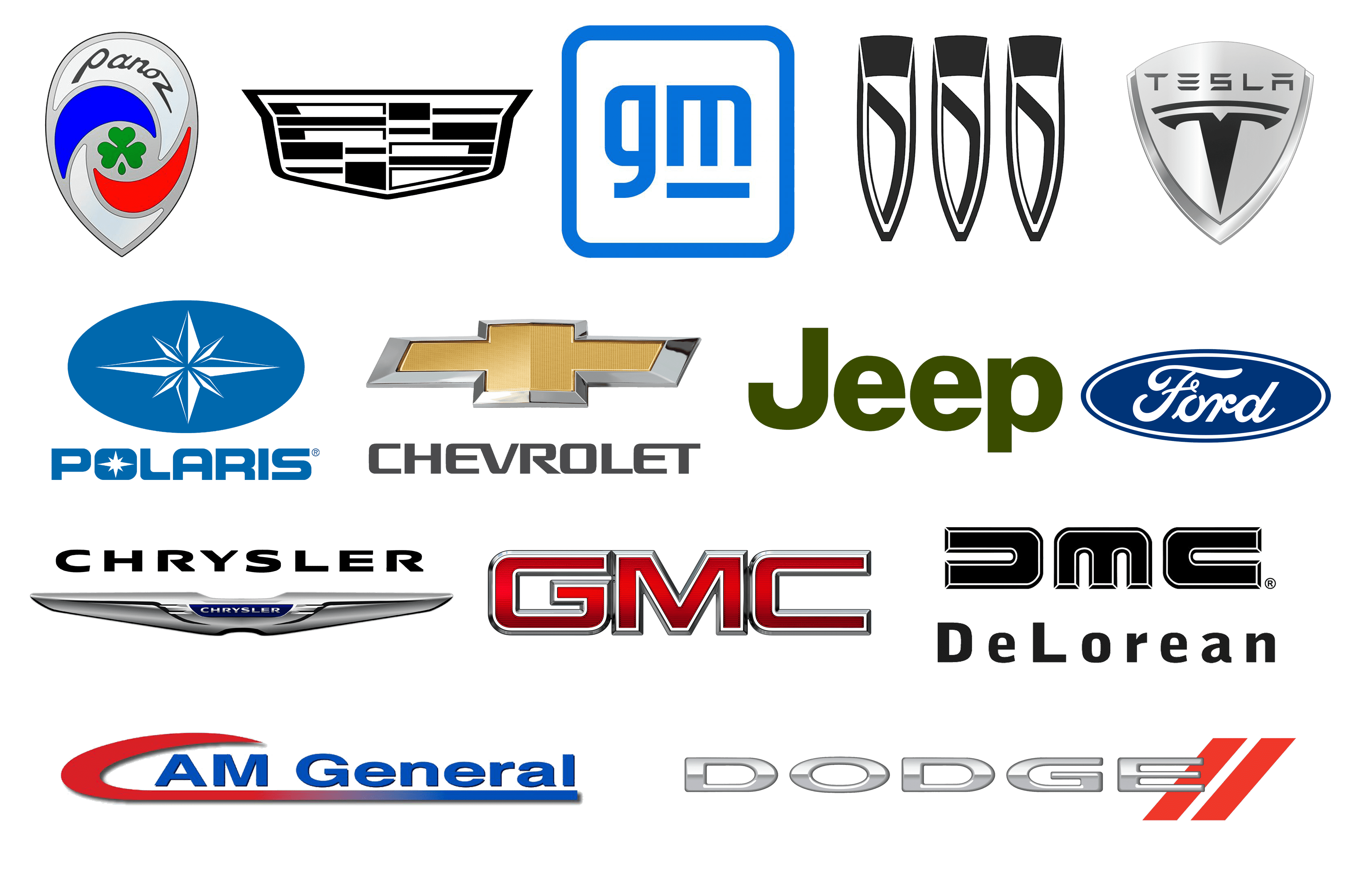
- Chevrolet: Known for its broad appeal, offering everything from popular trucks (Silverado) and SUVs (Equinox, Tahoe) to performance cars (Corvette) and expanding electric vehicle options (Bolt EV, Blazer EV). Many of its best-selling models are assembled in the U.S.
- GMC: GM’s premium truck and SUV division, offering more upscale versions of Chevrolet’s utility vehicles (Sierra, Yukon, Acadia) and the groundbreaking electric Hummer EV.
- Cadillac: The luxury flagship brand, synonymous with American luxury, offering premium sedans (CT5), SUVs (Escalade, XT5), and a growing lineup of electric vehicles (Lyriq, Celestiq).
- Buick: Positioned as an attainable premium brand, primarily focusing on stylish and comfortable SUVs (Enclave, Encore GX, Envista).

Ford Motor Company
An iconic American brand with a deep history of innovation and a focus on utility vehicles and performance.
- Ford: The bedrock of the company, famous for its best-selling F-Series pickup trucks, a dominant force in the American market for decades. Other popular American-made models include the Explorer SUV, Bronco, and the legendary Mustang muscle car. Ford is also a leader in the EV transition with vehicles like the Mustang Mach-E and F-150 Lightning.
- Lincoln: Ford’s luxury division, offering sophisticated and comfortable SUVs (Navigator, Aviator, Corsair) that blend American design with premium features.

Stellantis (FCA US LLC)
While Stellantis is a Dutch-domiciled multinational corporation formed from the merger of Fiat Chrysler Automobiles and PSA Group, its U.S. operations and the brands it owns have a distinctly American heritage and significant manufacturing presence in North America.
- Chrysler: Best known for pioneering the minivan segment with the Pacifica and the full-size 300 sedan. Chrysler is poised to re-emerge with a focus on electrified vehicles.
- Dodge: Synonymous with muscle cars and performance, offering powerful vehicles like the Charger and Challenger, and the Durango SUV. Dodge is also embracing electrification with models like the Hornet.
- Jeep: An iconic American brand, globally recognized for its rugged off-road capabilities and adventurous spirit. Models like the Wrangler, Grand Cherokee, and Gladiator pickup are produced in the U.S.
- Ram: Spun off from Dodge, Ram focuses exclusively on trucks and commercial vans, with the Ram 1500 and heavy-duty trucks being among the most popular and American-made vehicles on the market.
Tesla
A true disruptor, Tesla has redefined the electric vehicle market and is a prominent American manufacturer.
- Tesla: Headquartered in Austin, Texas, Tesla manufactures all its current production vehicles (Model 3, Model Y, Model S, Model X, Cybertruck) in the United States, primarily at its Fremont, California, and Austin, Texas, Gigafactories. Tesla represents a new era of American innovation in automotive manufacturing.
Emerging/Niche American Brands
The landscape of American manufacturing is continually evolving, with new players entering the market, often focusing on electric vehicles or specialized niches.
- Lucid Motors: Based in California, Lucid produces luxury electric sedans like the Lucid Air, known for its groundbreaking range and performance.
- Rivian Automotive: Headquartered in California, Rivian focuses on electric adventure vehicles, producing the R1T pickup truck and R1S SUV, along with commercial delivery vans (EDVs) for Amazon.
- Other smaller or emerging brands like Karma Automotive (luxury EVs) also contribute to the American manufacturing ecosystem.
Benefits of Choosing American Made Vehicles
Opting for an American-made vehicle offers a multitude of advantages that extend beyond the immediate purchase.
- Economic Impact: Perhaps the most significant benefit is the direct contribution to the American economy. Buying American-made supports U.S. jobs across manufacturing, engineering, design, and a vast network of suppliers. This, in turn, generates tax revenue that funds public services and stimulates local economies.
- Quality and Durability: American-made vehicles, especially those from established brands, are often designed and engineered to meet the specific demands and preferences of American consumers, including considerations for varied terrains, weather conditions, and driving habits. This often translates to robust construction and durability.
- Supply Chain Resilience: Shorter, more localized supply chains for American-made vehicles can lead to greater resilience against global disruptions, ensuring more consistent production and availability of parts for repairs and maintenance.
- Innovation and Design: American automotive manufacturers have a long history of innovation, from assembly line techniques to groundbreaking safety features and infotainment systems. Choosing American-made supports continued investment in research and development within the U.S.
- National Pride/Patriotism: For many consumers, purchasing an American-made vehicle is a source of national pride, a way to support domestic industry and uphold a tradition of American manufacturing excellence.
- Environmental Considerations: While not exclusive to American brands, vehicles manufactured in the U.S. often adhere to stringent environmental regulations and labor standards, which can be a consideration for environmentally and socially conscious buyers.
Important Considerations When Buying American Made
While the desire to buy American-made is strong, making an informed decision requires understanding a few nuances.
- "Most American Made" Lists: Various organizations, like American University’s Kogod School of Business (which publishes the Made in America Auto Index) and Cars.com (with its American-Made Index), compile lists ranking vehicles by their domestic content. These lists are invaluable but remember they are dynamic, based on specific criteria (e.g., assembly, engine, transmission, body, chassis, electrical, and content from specific regions), and can change year to year.
- Specific Model vs. Brand: Do not assume that every model from an "American brand" is primarily American-made. Conversely, some models from foreign brands may have a higher percentage of U.S. content than certain models from traditionally American brands. Always check the specific vehicle.
- Value and Features: While supporting American manufacturing is a noble goal, it’s crucial to balance this with your personal needs, budget, and desired features. Don’t compromise on safety, reliability, or essential functionalities solely for "American made" status. The best car is one that meets all your criteria.
- After-Sales Support & Parts Availability: Major American brands typically offer extensive dealership networks and readily available parts, ensuring easier maintenance and service throughout the vehicle’s lifespan.
How to Identify "American Made" Content
For the consumer eager to make an informed choice, here’s how to determine a vehicle’s domestic content:
- Window Sticker (Monroney Label): Every new car sold in the U.S. comes with a Monroney Label. Look for the "Parts Content Information" section. It will typically list the percentage of U.S./Canadian parts content, the country of origin for the engine, and the country of origin for the transmission. It also explicitly states the "Final Assembly Point."
- VIN (Vehicle Identification Number): The first digit of the VIN indicates the country of origin for the final assembly plant.
- 1, 4, 5: United States
- 2: Canada
- 3: Mexico
- J: Japan
- W: Germany
- K: Korea
- S: United Kingdom
- Z: Italy
- Online Resources: Consult reputable automotive websites and the "Made in America" indices mentioned earlier (e.g., American University Kogod School of Business Made in America Auto Index, Cars.com American-Made Index) which often provide detailed breakdowns of vehicle domestic content.
- Dealership Information: Don’t hesitate to ask your salesperson directly about a specific model’s manufacturing origin and parts content.
Overview of Key American Made Car Brands & Their Offerings
Here’s a table summarizing the major American car brands, their primary focus, example models, and typical price segments. Please note that "price" is highly variable by model, trim, and options; this table indicates a general segment.
| Brand | Parent Company | Primary Focus/Vehicle Types | Key Models (Examples) | Typical Price Segment |
|---|---|---|---|---|
| Chevrolet | General Motors | Trucks, SUVs, Sedans, Performance Cars, EVs | Silverado, Equinox, Tahoe, Corvette, Bolt EV, Blazer EV | Mainstream to Premium |
| GMC | General Motors | Premium Trucks & SUVs | Sierra, Yukon, Acadia, Hummer EV | Premium |
| Cadillac | General Motors | Luxury Sedans, SUVs, EVs | Escalade, XT5, Lyriq, Celestiq | Luxury |
| Buick | General Motors | Premium SUVs & Sedans | Enclave, Encore GX, Envista | Premium |
| Ford | Ford Motor Company | Trucks, SUVs, Performance Cars, EVs, Commercial | F-150, Explorer, Mustang, Bronco, Mustang Mach-E | Mainstream to Premium |
| Lincoln | Ford Motor Company | Luxury SUVs & Sedans | Navigator, Aviator, Corsair | Luxury |
| Chrysler | Stellantis | Minivans, Sedans, Future EVs | Pacifica, 300 | Mainstream to Premium |
| Dodge | Stellantis | Performance Cars, SUVs | Charger, Challenger, Durango, Hornet | Mainstream to Performance |
| Jeep | Stellantis | SUVs, Off-road Vehicles | Wrangler, Grand Cherokee, Gladiator, Wagoneer | Mainstream to Premium |
| Ram | Stellantis | Trucks, Commercial Vans | Ram 1500, Ram 2500/3500, ProMaster | Mainstream to Premium |
| Tesla | Tesla, Inc. | Electric Vehicles (Sedans, SUVs, Trucks) | Model 3, Model Y, Model S, Model X, Cybertruck | Premium to Luxury EV |
| Rivian | Rivian Automotive | Electric Adventure Vehicles (Trucks, SUVs, Commercial Vans) | R1T, R1S, EDV (Amazon Van) | Premium EV |
| Lucid | Lucid Group | Luxury Electric Sedans | Air | Ultra-Luxury EV |
(Note: Price segments are general and can vary significantly based on trim levels, options, and market conditions.)
Frequently Asked Questions (FAQ)
Q1: Are all cars from American brands made in America?
A1: No, not necessarily. While brands like Ford, GM, and Stellantis (for their U.S.-market brands) have significant U.S. manufacturing, many of their models or components for certain models may be sourced or assembled in other countries. Always check the Monroney sticker for specific information.
Q2: Does "American Made" mean 100% of parts are from the U.S.?
A2: Extremely rarely, if ever. The automotive supply chain is highly globalized. Even vehicles with the highest "American-made" content typically have parts from various countries. The American Automobile Labeling Act (AALA) defines "domestic content" as U.S. and Canadian parts combined, and a vehicle only needs 70% to be considered "domestic."
Q3: How do I find out how much American content a car has?
A3: The easiest way is to look at the vehicle’s Monroney (window) sticker, which is legally required to list the percentage of U.S./Canadian parts content, the country of origin for the engine and transmission, and the final assembly point. You can also consult "Made in America" indices from organizations like American University’s Kogod School of Business or Cars.com.
Q4: Are foreign brands like Honda or Toyota ever considered "American Made"?
A4: Yes! Many foreign-owned brands have substantial manufacturing operations in the U.S., employing thousands of American workers and sourcing a high percentage of their parts domestically. In some cases, specific models from these brands may have a higher U.S. parts content than some models from traditionally "American" brands.
Q5: Is buying American-made always more expensive?
A5: Not necessarily. The price of a vehicle depends on many factors, including brand positioning, features, technology, and market demand, not just its country of origin. You can find competitively priced American-made vehicles across various segments.
Q6: What are the newest American car brands?
A6: In the modern era, some of the most prominent newer American car brands are focused on electric vehicles. These include Tesla (though established, it’s a newer major player compared to the Big Three), Rivian (electric trucks and SUVs), and Lucid Motors (luxury electric sedans).
Concluding Summary
The landscape of "American Made Car Brands" is rich, diverse, and surprisingly complex. It’s more than just a company’s birthplace; it encompasses the vast network of design, engineering, manufacturing, and supply chain operations within the United States. From the historic powerhouses like General Motors and Ford to the innovative electric vehicle manufacturers like Tesla, Rivian, and Lucid, American ingenuity continues to drive the automotive industry forward.
Choosing an American-made vehicle offers tangible benefits, including supporting domestic jobs, strengthening local economies, and fostering innovation. However, an informed decision requires looking beyond brand names to the actual content and assembly location of specific models. By utilizing resources like the Monroney label and "Made in America" indices, consumers can confidently identify vehicles that truly contribute to the American manufacturing spirit. Ultimately, whether driven by patriotism, economic support, or simply seeking a quality vehicle that meets their needs, understanding "American Made" empowers consumers to make choices that resonate with their values.
